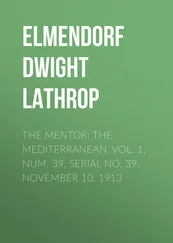W.h.g. Kingston - The Pirate of the Mediterranean
Здесь есть возможность читать онлайн «W.h.g. Kingston - The Pirate of the Mediterranean» — ознакомительный отрывок электронной книги совершенно бесплатно, а после прочтения отрывка купить полную версию. В некоторых случаях можно слушать аудио, скачать через торрент в формате fb2 и присутствует краткое содержание. Год выпуска: 0101, Жанр: foreign_antique, foreign_prose, на английском языке. Описание произведения, (предисловие) а так же отзывы посетителей доступны на портале библиотеки ЛибКат.
- Название:The Pirate of the Mediterranean
- Автор:
- Жанр:
- Год:0101
- ISBN:нет данных
- Рейтинг книги:4 / 5. Голосов: 1
-
Избранное:Добавить в избранное
- Отзывы:
-
Ваша оценка:
- 80
- 1
- 2
- 3
- 4
- 5
The Pirate of the Mediterranean: краткое содержание, описание и аннотация
Предлагаем к чтению аннотацию, описание, краткое содержание или предисловие (зависит от того, что написал сам автор книги «The Pirate of the Mediterranean»). Если вы не нашли необходимую информацию о книге — напишите в комментариях, мы постараемся отыскать её.
The Pirate of the Mediterranean — читать онлайн ознакомительный отрывок
Ниже представлен текст книги, разбитый по страницам. Система сохранения места последней прочитанной страницы, позволяет с удобством читать онлайн бесплатно книгу «The Pirate of the Mediterranean», без необходимости каждый раз заново искать на чём Вы остановились. Поставьте закладку, и сможете в любой момент перейти на страницу, на которой закончили чтение.
Интервал:
Закладка:
“There, miss,” he observed, “I think you will be able, more at your ease, to sit and look at the little island we are leaving behind us. It’s always a pleasure to take the last look at the place we are going from.”
Ada thanked him with a sweet smile for the chair which he had judiciously placed on the starboard side of the poop, and looking partly aft, so that she could command a full view of the harbour, where the Ione lay, and of the fortifications of Valetta. The Zodiac was now running out between forts Saint Elmo and Ricasoli; and as she cleared the former, she felt the wind drawing rather more to the northward. Her yards were, therefore, braced forward, and her mainsail hauled out; and now with the wind on her quarter, a point in which every sail a square-rigged vessel can carry draws best, with a fine rattling breeze she rapidly left the shores of Malta astern.
Chapter Seven.
Never did a vessel leave port under more propitious circumstances than did the Zodiac, with a fair, steady breeze, a smooth sea, and at a time of the year when there was every prospect of the continuance of fine weather.
As Bowse walked the deck with a spy-glass under his arm in man-of-war fashion, a smile of contentment lit up his honest countenance, and glistened in his eye; and as he felt the freshening breeze fanning his cheek, and lifting his vessel, as it were, he began to laugh at his momentary suspicions about the character of the speronara and her crew. Every now and then he would stop in his walk, and would look over the side to judge how fast the vessel was going through the water, or he would examine the compasses to assure himself that they were true, or he would cast his eye aloft to see how his sails drew, or his clear, full voice would be heard issuing some necessary order for the government of the ship.
Even Colonel Gauntlett could not help expressing his satisfaction at the propitious commencement of their voyage, as he stopped in his short and otherwise silent walk on the poop to address a few words to the master.
Ada sat silently in her chair, gazing on the fast-receding shore; and it is not surprising that her thoughts were fixed on him who was, she felt sure, even then watching, from its most extreme point, the bark which bore her away. Her little Maltese maid, Marianna, stood by her side with tears in her bright eyes, and gazing her last for an indefinite time on the land of her birth, and where all her affections were centred, except those which had lately arisen for her young mistress.
The colonel’s man, not knowing exactly where he ought to be, being too dignified, at first, to mix with the men forward, and astonished and confused at manoeuvres which he could not comprehend, as is generally the case with his class, always managed to get exactly where he was most in the way.
“Port a little, you may, my son,” said the master to the man at the helm; “steady, so, keep her. East-and-by-north is the course,” pronouncing the north with a strong emphasis on the O, and without the R – as if it were spelt Nothe. “Just get a gentle pull on our weather-braces, Mr Timmins,” to the mate. “The wind’s drawing a little more aft again. We’re making her walk along, sir,” to the colonel. “She’s not going less than six knots an hour, I’ll warrant, which, with this light wind, is not bad for a craft of her build – she’s no clipper, I own, sir. Heave the log here. I dare say you’ll like to be certain, miss,” turning to Ada, as he thought the operation would amuse her.
The second mate and two hands came aft with the log-line and reel. Bowse took a half-minute glass from the binnacle, and watching till all the sand had run into one end, held it up before him. The seamen, meantime, held the reel up before him, so as to allow it to turn easily in his hands, and the mate, taking the little triangular bit of wood, called the log-ship, adjusted the peg, and drew off, with a peculiar jerk of his left hand, several coils of the stray-line, which he held for a moment over the quarter of the vessel, till he saw that his chief was ready with the glass, and he then hove it over into the water. The first part of the line is called the stray-line, and its object is to allow the log-ship to settle properly in the water, as well as to take it clear of the eddy. As soon as this part had run out, a cloth mark ran through the mate’s fingers. “Turn,” he exclaimed. “Turn,” repeated the master, and turned the glass. The marks rapidly passed through the mate’s hand, as he jerked the line of the reel, always keeping it at a stretch.
“Stop,” sung out Bowse, as the sand had run out of the upper end of the glass.
“Done,” said the mate, and stopped the line.
He had not to count the knots run off, for his experienced eye was able to tell the number by the mark on the line. It must be understood that this line is divided into a certain number of equal parts, each of which bears the same proportion to a mile, which thirty seconds do to an hour, and therefore, as the log-ship remains stationary in the water, according to the number of these proportions dragged through, while the sand is running, so is shown how many miles or knots the vessel is going through the water.
“Six and a quarter,” exclaimed the mate. “That’s what I call good going for a ship with a full cargo, in a breeze like this.”
“That’s what we call heaving the log, Miss Garden,” said the master, who had been explaining the use of the log, though in not quite so succinct a way as I have attempted to do. “You’ll be able to turn the glass another time, I’m sure.”
The glass runs, in reality, only for twenty-eight seconds, as two are considered to be employed in turning it.
Ada, who enjoyed an advantage over the reader, by having the operation performed before her eyes, answered that she clearly understood it, and would always, in future, hold the glass.
“By this calculation, you see, miss, as it is just two hours since we passed Fort Saint Elmo, we have run exactly twelve knots and a half off the reel; though we didn’t go through the water so fast at first, as we are now doing. However, by the look of the land, I calculate we are not much less than that off it. You see we call miles – knots, miss, on account of the knots which are marked on the line. When we can just see the last of some conspicuous point, we shall take its bearing by compass and its distance, and then I shall commence pricking the ship’s course off on the chart, and that is what we call taking our departure. Now you see there’s many people on shore would fancy that when we left the port we took our departure; but the ties which bind a seaman to the shore, and to those we leave behind, are not so quickly parted as they may think, you see, miss.” And the honest master, chuckling at one of the first attempts at wit and gallantry of which he had ever been guilty, thought the next instant he blushed at his own audacity.
“It’s surprising, miss, what funny mistakes them who never leave the land make about seafaring concerns; but then, what can you expect of them? they know no better,” he added, in a tone showing the deep commiseration he felt for the ignorance of landsmen. “To say that they don’t know the stem from the stern, isn’t to say anything. They know nothing about a ship, how she’s built, how she sails, or what she’s like. The last voyage I made I had a passenger on board who was a cleverish sort of gentleman, too, and for talking politics he’d go on for an hour; yet he wanted to know why I couldn’t bring the ship to an anchor right out in the Bay of Biscay; and one night, when it was blowing a stiffish gale, with a heavy sea running, he roused me out of my sleep to ask me to send a better hand to the helm; one who knew how to keep the craft steady, or else to run into some harbour till the morning. He never could get it out of his head that he was not in the Thames. Now, miss, I see that you are not one of those sort of people, and that you will soon know all about a ship, though you may not just yet be able to act the captain. To-morrow I’ll show you how to shoot the sun, as we tell greenhorns we are doing, when we take an observation with the quadrant. It’s a very pretty instrument, and you will be pleased to know how to use it.”
Читать дальшеИнтервал:
Закладка:
Похожие книги на «The Pirate of the Mediterranean»
Представляем Вашему вниманию похожие книги на «The Pirate of the Mediterranean» списком для выбора. Мы отобрали схожую по названию и смыслу литературу в надежде предоставить читателям больше вариантов отыскать новые, интересные, ещё непрочитанные произведения.
Обсуждение, отзывы о книге «The Pirate of the Mediterranean» и просто собственные мнения читателей. Оставьте ваши комментарии, напишите, что Вы думаете о произведении, его смысле или главных героях. Укажите что конкретно понравилось, а что нет, и почему Вы так считаете.












